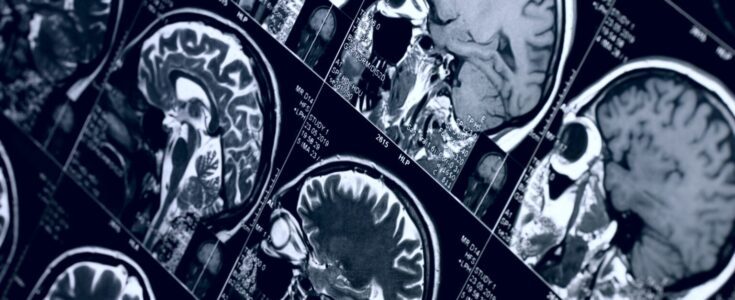
Newsroom
Ivy Brain Tumor Center Announces Results of Phase 0/1 Study in Recurrent Glioblastoma Patients at the European Society for Medical Oncology (ESMO) 2023 Congress

Oral presentation features interim data on the pharmacodynamics and pharmacokinetics of ATM inhibitor in combination with radiation in glioblastoma
PHOENIX, ARIZ, October 18, 2023 – The Ivy Brain Tumor Center at Barrow Neurological Institute announced initial results from a Phase 0/1 clinical trial of the Ataxia telangiectasia mutated (ATM) kinase inhibitor AZD1390 in recurrent glioblastoma in combination with radiation therapy. This novel Phase 0/1 study demonstrated, for the first time in human, that AZD1390 may be a potent radio-sensitizer in patients with glioblastoma.
The analysis shows that AZD1390 is well-tolerated in recurrent GBM patients, achieving pharmacologically relevant concentrations in gadolinium non-enhancing tumor tissue, and substantially suppressing activation of ATM target, pRAD50, in response to radiation.
Nader Sanai, MD, Director of the Ivy Brain Tumor Center and Director of Neurosurgical Oncology at Barrow Neurological Institute, will present the findings during a mini oral session on CNS tumors at the European Society for Medical Oncology Congress in Madrid, Spain on Saturday.
“Exploring ATM as a target for brain tumor precision medicine is an important priority for our field and our patients,” says Dr. Sanai. “Our data indicates that AZD1390 is brain penetrant and generates tissue effects consistent with radiosensitization in recurrent glioblastoma patients.”
Initial data is based on 12 recurrent glioblastoma patients who enrolled in the clinical trial and received the study drug for three days prior to brain tumor surgery. Tumor tissue, cerebrospinal fluid and blood were collected. All patients exceeded a predefined threshold for brain tumor drug penetration, qualifying them for continued therapeutic dosing with AZD1390 plus radiotherapy. In parallel, excised tumor tissue was also radiated ex-vivo, demonstrating that pRAD50 expression was significantly suppressed in AZD1390-treated patients compared to untreated.
This study is still accruing and a Phase 0/1 clinical trial of AZD1390 in newly diagnosed MGMT-unmethylated glioblastoma is now underway. To learn more, including eligibility criteria, visit https://www.clinicaltrials.gov/study/NCT05182905.
This is an investigator-initiated study, funded by the Ben & Catherine Ivy Foundation and Barrow Neurological Foundation. The study drug is provided by AstraZeneca.
About AZD1390
AZD1390 is a highly potent, brain penetrant ataxia telangiectasia mutant (ATM) kinase inhibitor that blocks ATM-dependent signaling and repair of DNA double strand breaks in the genome. AZD1390 therefore exhibits powerful activity in combination with agents such as irradiation that induce those breaks. AstraZeneca supplied AZD1390 to the study investigators, as well as provided scientific collaboration in study design and implementation.
About Ivy Brain Tumor Center
Ivy Brain Tumor Center at Barrow Neurological Institute in Phoenix, AZ, is a tertiary care and nonprofit translational research program that employs bold, early-phase clinical trial strategies to identify new treatments for aggressive brain tumors, including glioblastoma. Our leading experts in neurosurgical oncology, neuro-oncology, radiation oncology, neuroradiology, neuropathology and neuroscience nursing treat more patients annually than any other brain tumor center in the United States. The Ivy Center’s Phase 0 clinical trials program is the largest in the world and enables personalized care in a fraction of the time and cost associated with traditional drug development. In addition, unlike conventional clinical trials focusing on single drugs, the Ivy Center’s accelerated program tests therapeutic combinations matched to individual patients. We leave no stone unturned in the pursuit of hope and healing. Learn more at IvyBrainTumorCenter.org. Follow the Ivy Brain Tumor Center on Facebook, Instagram, Twitter, and LinkedIn.
